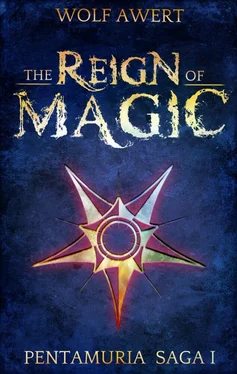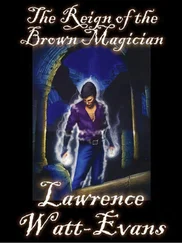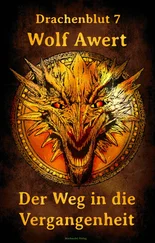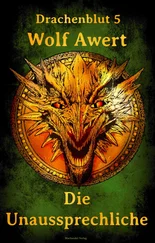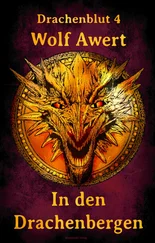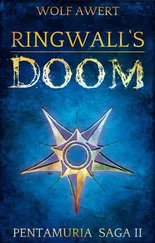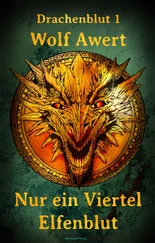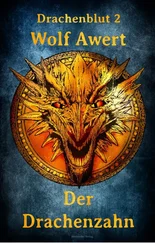“We know that a Magon can find a way into the future, and we know that you can do the same. But the cost,” Nosterlohe interjected, sending dark red clouds across the onyx surface that died down in the middle.
“It is not the price of knowledge that has stopped me from taking that step thus far, Nosterlohe. But what use is a glimpse into the future if we do not know what we are looking for? The future contains not only what will be, but all that can be.
“Change has always happened, none can escape it. But never has change meant the downfall of a familiar world. On the other hand, the Circle of mages is the first example in Ringwall’s history of a force that can make its own destiny. Fate itself chose for this to happen, made our Circle ever stronger and gave us the Onyx around which we hold council. And so we may well ask whether the foretold change is unavoidable, and if it is, which role Ringwall will play in it.
“I see a war with many battles. But I do not see an enemy. For five winters our sorcerers wandered Pentamuria, they spoke with the sages of this world, with the arcanists of the five kingdoms, the shaman who look for answers in the Other World, with the eldest druids and the wise women of the Oas. We have collected the tales of the founding of Ringwall and we have found ancient prophecies. We heard the legends of the encounters of men with gods and demons, myths of old Earthen powers and Air spirits. Not all of those we sent have returned, and we still know too little. The knowledge of the future lies in the knowledge of the past. But the past, too, is uncertain and vague.”
The Magon frowned, causing black clouds to appear above his brow, and the Onyx became even darker.
“Stories for children and old women seem to be all we have left of the old wisdom. As though the wisdom of our forebears had wilted away to become part of common gossip, lullabies for children and songs of praise for unnamed heroes. And so one single legend remains, for which we have to thank our brother Ambrosimas, who picked it up from the anglers in Waterworld. It is the song of the man from the mists. If this legend still holds even a shred of truth, then a time of change is coming, led and executed by a single man. A single man, alone, with no ancestry and no history, is to make Pentamuria and all those who live in this world reel as the mightiest storm could not. I call this man the Changer, the bringer of alteration. We must know what the other peoples of Pentamuria know about this person. This, and only this, is what caused us to open the gates of Ringwall last winter.”
“A choice that has doomed us all,” a cold voice rang out. Bar Helis had risen up. If the element of Metal had not existed, nature would have created it anyway just for this mage. He combined Ilfhorn’s resilient strength with the Magon’s inflexible toughness. His face was smooth and had a matte sheen to it. The long nose was curved downwards, the eyes almost hidden under heavy lids, and the corners of his mouth accompanied the points of his thin beard downwards. If there was something Bar Helis despised, it was weakness, and he saw weakness in everything. His magic, the magic of Metal, was very simple. It was of great, piercing power, and he never had to perform a second summon.
A pale blue wave was emitted from his seat. His resentment was so strong that for a moment all lights and sparks on the Onyx were overrun by it.
“There will be a battle, but I do not fear it. The successful general chooses the time and place of his victories. The place is Ringwall, the center of the world and the spring of our power. And as for time, it will have to leave its hiding place before long. We will recognize it with ease as long as the enemy is outside of our walls. With our powers combined we can resist all change and even deny fate. We must only be prepared. But if we break all rules and traditions that have protected us thus far, blind and deaf to the consequences of our actions, we will set change in motion ourselves. We will become our own enemy. In the end we will fight amongst ourselves. Mark my words; remember them when the time has come.”
Silence spread through the room. Nosterlohe and Gnarlhand sat still as two rocks at the table and even Ilfhorn had lost his ease. The Onyx was almost black now, only in front of the stool of Nothing was it still unchanged and gray.
“Well,” a quiet voice emerged. “The enemy must enter Ringwall by the gate to defeat us. If it does so in the shape of a student of nobility, not all of our traditions will save us, and it will be in our midst, unseen. If Ringwall’s gates are opened, it may dare enter as a stranger, as a guest or as a magical presence. We would see it for what it is in that case.”
Mah Bu, the Archmage of the Other World, was an unimposing man with a dry, passionless voice who lay rather than sat on his chair. His long, outstretched right leg scuffed along the floor with its ankle, as though he wanted to make sure he was actually in this world. His voice was always quiet and he never raised it, nor did the pitch ever change when he spoke – if he even spoke, that is. He looked at Bar Helis as though he intended to add something, opened his mouth but decided against it. He shook his head begrudgingly.
The Onyx remained unchanged, dark. Mah Bu’s thoughts had not reached it.
Dakh gave Nill a light push and said in a bright voice quite at odds with his serious expression: “Come, we do not want to spend the night out here.”
Nill did not notice Dakh’s wariness. He stood, enthralled, before the unfamiliar building, the sheer size of which outclassed anything he had ever imagined back home in Earthland. It was less the height of the wall that kept his attention so raptly than the blocks it was made of. From Earthland Nill only knew the flat bricks made of mud and straw, baked in the fire, and the strange light stones from the quarry that the villagers had brought to build the well. The stones of Ringwall were dark and smooth, as wide as he was tall and as tall as a ram. No man except a sorcerer could have moved these blocks.
The gate itself was decorated with magnificent carvings of defensive spells and strange symbols, and had neither guards nor bolts. To Nill it seemed like a special display of strength, confidence or recklessness on Ringwall’s behalf that the gate was half open. It opened to the outside, which made it look as though the left part of it was beckoning visitors inside. If locked it would probably be difficult to break open, even with a heavy battering ram. In the right part a small door was built into it that opened to the inside, easy to defend and as a preventative measure to make sure the residents of Ringwall could not be trapped inside the city by attackers. Nill admired the construction, although he knew that the war times had long since passed Ringwall. These days, apparently, no threat was felt, and the right part of the gate stood comfortably in the evening sun.
The gate separated the bleak path leading up the Knor-il-Ank from the equally dismal footpath connecting the walls of the inner and outer circles. It’ll be completely muddied up here in winter , Nill thought.
The look Dakh-Ozz-Han was giving the half-opened gate was anything but sympathetic. “A gate that welcomes its newcomers should show it, too,” he muttered to himself, frowning. “And not just stand open a tiny, treacherous bit. I see no guards and nobody to report our arrival. I have seen worse traps than this half-opened wooden beast’s jaw.”
The druid closed his eyes and allowed his other senses to take over. Ringwall’s walls breathed magic, the gate was enchanted with numerous protective spells, and the footpath smelled of countless bearers of magic who had trodden it. It was all as the druid had expected. Apart from that he found nothing to give weight to his mistrust, but nothing, either, to make him let down his guard.
Читать дальше
